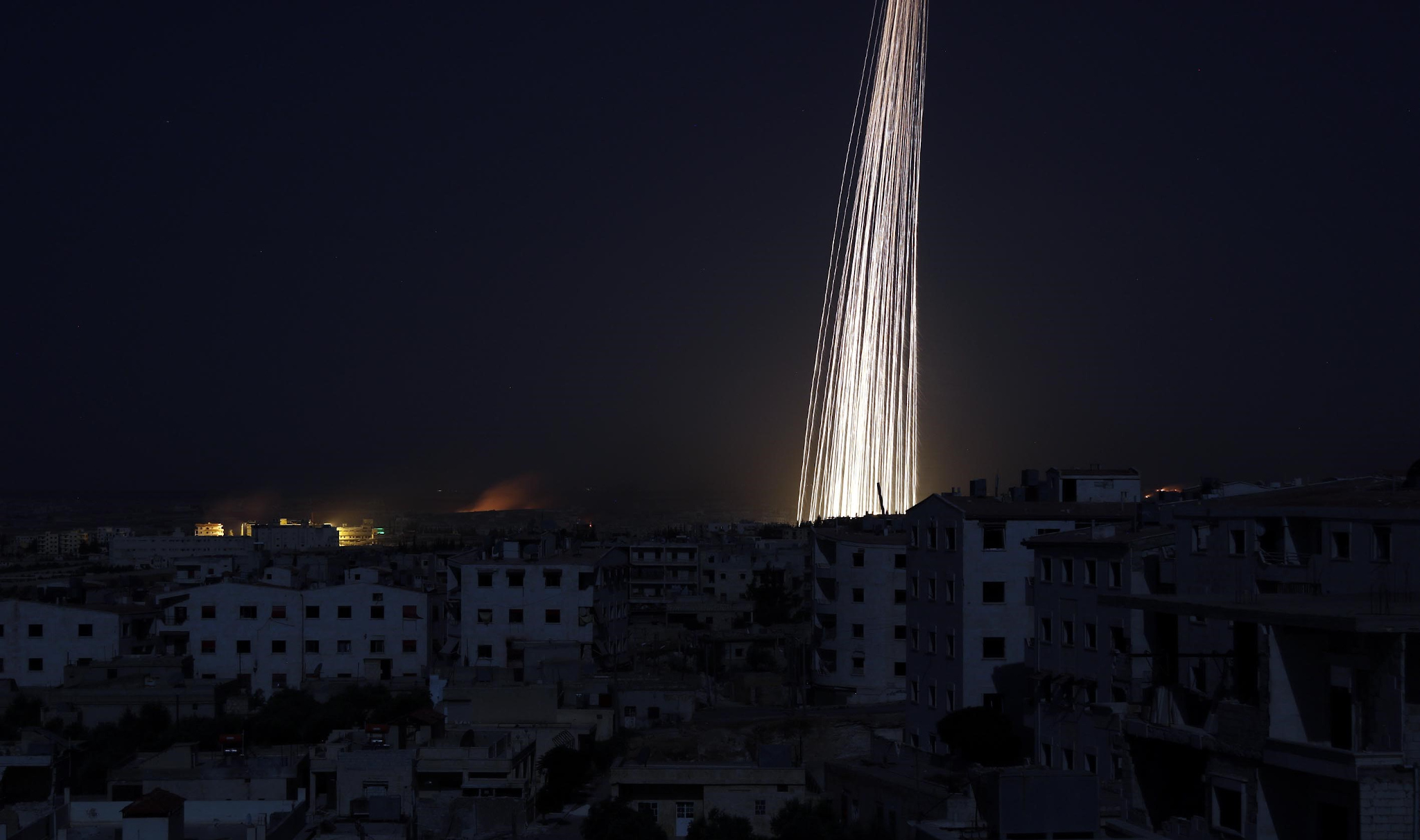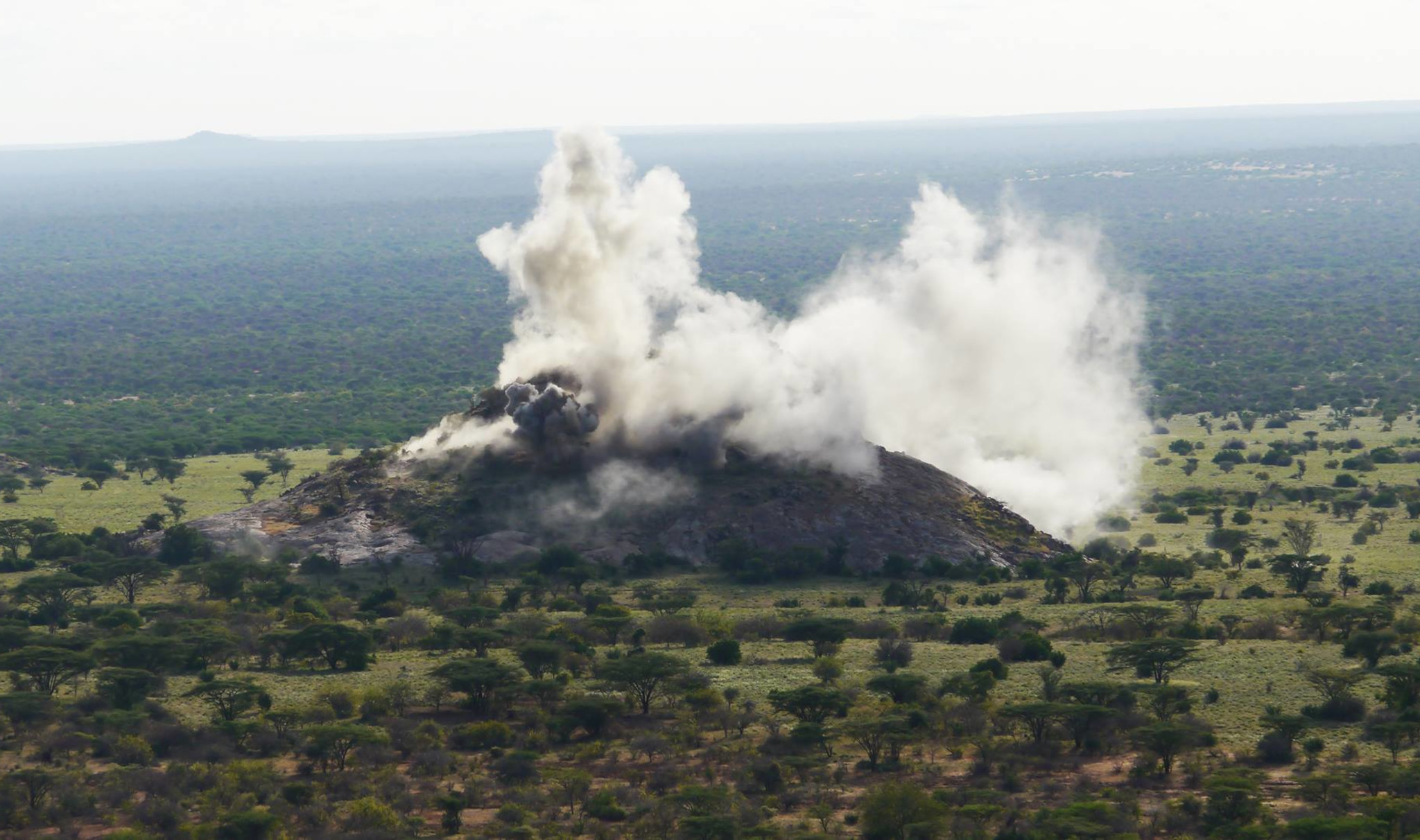Defence minister James Heappey said today UK soldiers have deployed white phosphorus mortar rounds on training exercises in Kenya “where conditions have permitted their use”.
He added it provided “illumination for training at night, as well as for smoke screening purposes”.
White phosphorus is not currently banned as a chemical weapon but has similar effects. Human Rights Watch says it is “notorious for the severity of the injuries it causes” and “deeply burns human flesh”.
“If fragments of white phosphorus enter the bloodstream, they can lead to multiple organ failure,” the group notes. “Already-dressed wounds can reignite when dressings are removed”.
Earlier this month Britain’s Defence Intelligence called out Russia’s deployment of white phosphorus in the Donbas region of Ukraine and warned Vladimir Putin could use it in fighting over the besieged port city of Mariupol.
Ukraine’s president Volodymyr Zelensky has complained to Nato about Russia’s use of white phosphorus. Media reports of its use often trigger fears the Kremlin will escalate to firing banned chemical weapons.
Although there is no suggestion Britain deliberately targets Kenyan civilians with white phosphorus, many of its exercises in the east African nation occur on communal land. An internal army report seen by Declassified states that live firing of mortars takes place in areas “frequented by farmers, villagers and nomadic tribes-people”.
Kenny MacAskill MP, who uncovered its use in Kenya, said: “The dangers of white phosphorus are well documented and have caused injury and misery in many conflicts.
“That it should be used in training exercises near where civilians are located or through where they’ll pass is highly dangerous. It just shouldn’t be happening and the Ministry of Defence should cease this practice.”
Debris
The British army can train on a vast area of land in Kenya. In recent years, military exercises created enough debris to fill more than a dozen shipping containers.
Not all discarded ammunition is recovered from the training grounds, posing a hazard to local people.
MacAskill previously uncovered that a 13-year-old Kenyan boy sustained lacerations and burns when he found an unignited mini flare last January. The army said it was “consistent with British munitions that had been used in the area”.
In 2015, another 13-year-old Kenyan boy, Lisoka Lesasuyan, lost both arms and an eye when he picked up an unexploded mortar fuze. The type of fuze was withdrawn from British army service in 2019 after it was found to contain the poisonous explosive substance Tetryl, Labour MP Clive Lewis was told.
Tetryl can affect the nervous, digestive and respiratory systems. Its manufacture in the United States was stopped as far back as 1973, and the Pentagon is destroying remaining stocks.
‘Suspicions they’ve used chemicals’
Kenyan lawyer, Kelvin Kubai, who represents victims of British army abuses, told Declassified he believes local people have health problems linked to Tetryl and white phosphorus, such as impaired vision.
“We’ve had suspicions for a long time that they’ve used chemicals during the training and now evidence is coming to light that confirms our worries,” Kubai commented.
“It’s astonishing that as recently as 2019, Tetryl was in use by the British army given its toxicological characteristics. Kenyan authorities and the community at large are being kept in the dark.”
He accused the UK military of an “unsustainable culture”, noting that a treaty governing Britain’s use of training grounds in Kenya only recently added a clause allowing the host nation to monitor the environmental impact.
“I feel the British army has been taking advantage of the absence of such a monitoring law as a check on the use of their training fields. This law is being introduced quite late, after British soldiers have already been training in Kenya for many years.”
An army spokesman said “the British Army does not use white phosphorus mortar rounds as an incendiary weapon” because they are not targeted at civilians, and their primary purpose is for illumination. Any incendiary effect is apparently incidental.
The rounds are only fired on the Archer’s Post training area, which spans 87,000 hectares of Kenya. The army claims that range wardens and contractors clear the area of civilians prior to exercises through outreach to the local pastoralist population. Helicopters are used to ensure wildlife has vacated.



